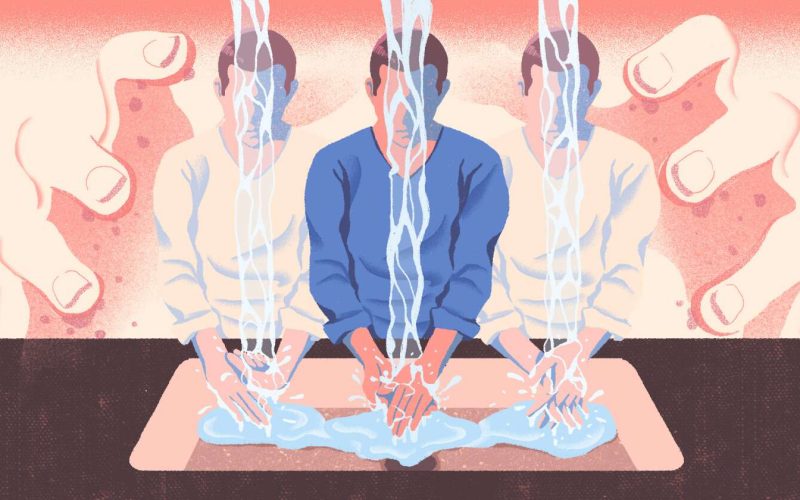Mental illnesses are prevalent in our society today, and many people tend to confuse one condition with another.
Anxiety disorder is the most common mental disorder that affects humans.
Some include OCD, phobia, panic disorder, and many more. Since these disorders have similar symptoms, confusion occurs while identifying them.
This article guides us through two anxiety disorders: OCD and phobia.
Read on as we have discussed the difference between phobia and OCD, but what is anxiety disorder itself?
What is Anxiety Disorder?
Anxiety disorder is the most common form of mental condition. However, it’s normal to feel anxiety at some point in our lives, like going for an interview.
However, excessive fear and dreadfulness are signs of anxiety disorder.
Anxiety disorder mainly occurs in women, and research is still on about why.
Most researchers suggest that it links to women’s hormones that fluctuate monthly.
Also, most women don’t seek treatment, making the disorder worse.
There are different types of anxiety disorders, and they all have their symptoms.
Since these disorders are linked to fear, people think they are the same.
Let us discuss the difference between phobia and OCD.
What is Phobia?
A phobia is an anxiety disorder that depicts excessive fear of a situation. This extreme fear isn’t general; some might fear enclosed places, animals, etc.
Nonetheless, people who have any phobia try to avoid the situation as much as possible.
The phobia could last for more than six months or even a lifetime and could cause distress from time to time.
Some phobia symptoms include fainting, sweating, pounding heart, and chest tightening.
If you have felt some of these symptoms in a particular situation, it might mean you have a phobia.
Also, a person can suffer multiple phobias, which could result from environmental or genetic factors. You’re at a high risk of experiencing phobia if a close relative suffers from an anxiety disorder.
One can also experience phobia from a traumatic event that has caused some damage, like brain injuries.
What is OCD?
OCD is the acronym for Obsessive-Compulsive Disorder. It is a disorder where people struggle with unwanted ideas or thoughts, mostly obsession.
This obsession pushes them to feel the urge to do repetitive tasks, such as cleaning, organizing, and washing.
OCD could interfere with one’s social interactions and daily activities. Though people free from OCD suffer from repetitive thoughts, these thoughts don’t last. OCD patients suffer from persistent thoughts, and not doing what’s in their thoughts causes discomfort.
Furthermore, OCD affects more women than men; the reason for this is yet to be known.
It starts in childhood and adolescence, but the symptoms only start to show in the teenage years.
Difference Between Phobia and OCD
The idea behind the difference between phobia and OCD is simple. Though they are both anxiety disorders, there’s a clear difference.
Phobias are when you are afraid of something, while OCD is when you obsess over your fears.
For instance, if you encounter a rat in your house, its presence might freak you out. After killing that rat, you might recheck your home for more rats.
However, OCD keeps you checking for rats in your house repeatedly. This is a sign that you are obsessed over a rat hiding in your home, making you search again.
Also, if you have a phobia, you will most likely feel fear and anxiety alone. But with OCD, other emotions are involved, like shame and disgust.
Furthermore, the two disorders might involve therapy, but the approach to each of them is different. Exposure therapy for phobia ensures that the patient changes their response to their face.
However, for an OCD patient, psychological treatment is taken to help the patient face their obsessive thoughts. It also stops them from setting them right with compulsions. Drugs are also administered to relieve them of depression.
Conclusion
Anxiety disorders come in different forms, but it’s essential to understand their differences.
Though phobia and OCD seem similar, they have different symptoms and are treated differently. Nonetheless, if you have experienced these signs, visiting a doctor is best.








